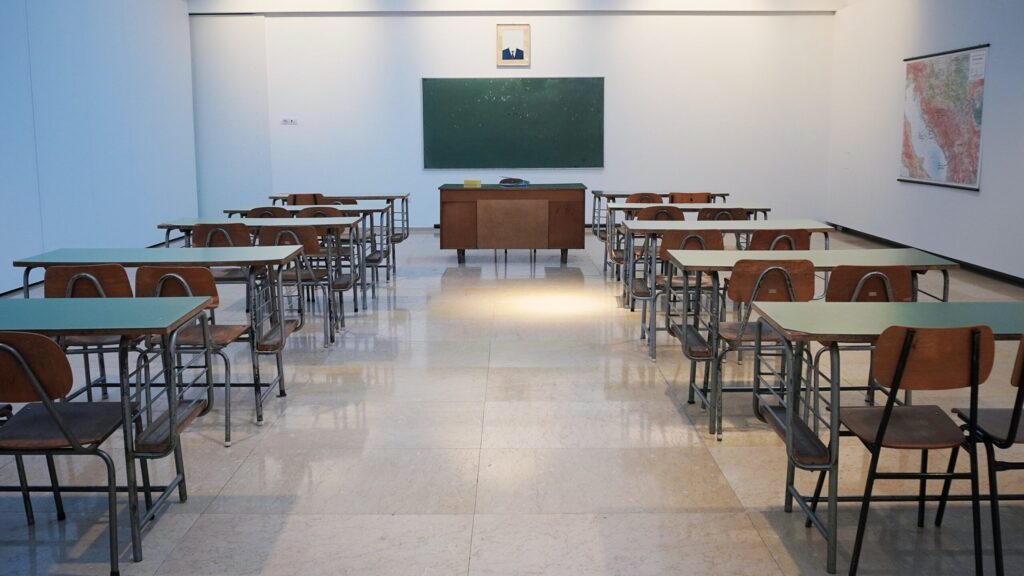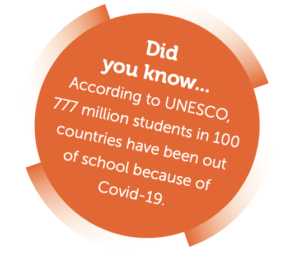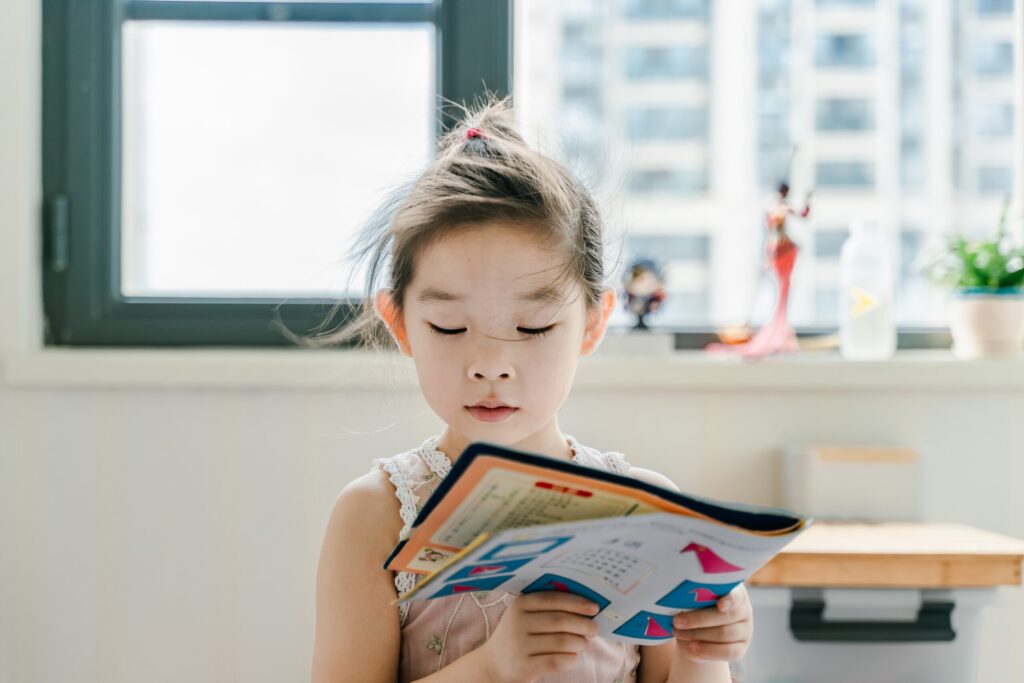ACCESS NL > Features > Schools rediscovering themselves during lockdown
Schools rediscovering themselves during lockdown
2020-06-22 | By Jacqueline Pemberton
Who would have thought when we were sipping our champagne, eating our oliebollen, or hearing the last of the fireworks fizzle out on New Year’s Eve that just a few months later, we would be all be donning facemasks, and that terms like ‘social distancing,’ ‘flattening the curve’ and the ‘new normal’ would become part of our vocabulary?
Dutch Prime Minister Rutte, when the pandemic first began to tighten its grip on the Netherlands, said, “many people will recognise the feeling that we have been on a roller coaster in recent weeks that seems to be getting faster and faster. You wonder: is this really happening? Because the measures taken here and elsewhere are unprecedented for peacetime countries.”
Impact
AS UNESCO Director-General Audrey Azoulay said, “while temporary school closures as a result of health and other crises are not new, unfortunately, the global scale and speed of the current educational disruption is unparalleled, and if prolonged, could threaten the right to education.”

Moreover, the lockdown on schools that first began on 16 March has led to disruptions for pupils, teachers, and parents alike. Most pupils are missing their friends and the continuity and structure of a physical school, while parents are having to make major adjustments to accommodate the change to their family’s routine.
Teachers have also felt overwhelmed by the increase in their workload, as they work to provide their pupils with sufficient educational resources and schoolwork online. Many teachers have been thrown into the digital deep end and are having to tread water. As one educational innovator told the Volkskrant newspaper, “it’s as if we’ve gone from 2020 to 2030 in one weekend.”
Taking it in their stride

As Elise Reynard, an art teacher at Winford Bilingual Primary School in Amsterdam says, “creating some new online learning options for our students has made us all more technologically savvy.”
While the consensus in the Netherlands, is that het valt wel mee (it isn’t too bad), and it may not quite be business as usual, it is reassuring that schools are doing their utmost to ensure they continue to run as smoothly as possible.
Jack Fox-Powell, director of admissions and marketing at Nord Anglia International School Rotterdam says, “we wouldn’t say there have been too many big problems, mainly because we have placed a lot of emphasis on regular communication with our parent body. In times like these, it’s important to communicate a lot more, not less, so we’re together with our parents to get through this challenging situation.”
This is supported by the International School of The Hague’s secondary principal Richard Matthews, “we were able to learn from countries that went into lockdown ahead of Europe, and our state-of-the-art technology provision meant we overcame these challenges very quickly.”
Digital divide
But what about schools which may lack learning resources, or pupils have slow or no Internet access at home? Or parents who may not be able to afford (especially during the crisis when jobs are on the line) to provide their children with the technology needed to participate?
While many consider the Netherlands to fare quite well in this area, there are invariably pupils who will be left out of the equation.
An article on the World Economic Forum website discussing the digital divide points out, “among the many inequalities exposed by Covid-19, the digital divide is not only one of the starkest, but also among the most surprising. Even in developed countries, Internet access is often lower than you might think.”
Karin Cordewener, an internal supervisor at Openbare Montessori School Jan Prins and a former school principal, said one of the biggest challenges she is facing is in having to “ensure all students are offered remote education and not only on request. As well as caring for vulnerable students in difficult home situations.”
Karin Cordewener, an internal supervisor at Openbare Montessori School Jan Prins and a former school principal, said one of the biggest challenges she is facing is in having to “ensure all students are offered remote education and not only on request. As well as caring for vulnerable students in difficult home situations.”
Ensure all students are offered remote education
Covid-19 and education
At time of going to press, the Dutch government’s information for pupils, parents, students, teachers and educational institutions is:
Primary schools
Primary schools are open for half of pupils at a time. From 8 June, primary schools will provide the regular number of teaching hours to all children, unless the research currently being carried out shows that this is not safe. In the coming weeks agreements will be made with the education sector on the arrangements for fully reopening schools.
Out-of-school care (BSO) will also reopen fully on 8 June and children will be able to attend on their regular days.
From 8 June emergency childcare will only be available for the children of healthcare professionals working evening, night or weekend shifts (until 1 July).
Children and parents should not come to school if they have cold-like symptoms.
Pupils in facilities for newcomers to the Netherlands can go to primary school every school day. This applies only to schools linked to an asylum reception centre and schools that provide education exclusively to newcomers.
Secondary schools
Secondary schools, including special secondary schools, will reopen on 2 June. Schools will take measures to ensure that everyone can keep 1.5 metres apart.
Pupils should walk or cycle to school if possible, especially if they live less than eight kilometres away. Pupils should not travel to and from school by public transport.
Schools will arrange special transport for children who live a long way from school.
Practical details will be worked out by secondary schools in accordance with the hygiene and physical distancing instructions. Different schools may opt for different measures. Schools will inform parents about the arrangements at their child’s school.
Schools for secondary vocational education (MBO)
Schools for secondary vocational education (MBO) can open for tests and practical training from 15 June.
MBO students could already do their final exams at school. Students are being taught via distance learning. All national exams for this school year have been cancelled.
Find up-to-date information at government.nl/topics/coronavirus-covid-19

Give us back our education
Clearly, while there are limitations and disadvantages to traditional education, many miss it much more than they would have thought.
“I think many teachers are realising–maybe even society as a whole–that we took certain things for granted that we now realise we value. For example, a school is a social community, and that a school has more value than just a place to go to get your certificate,” Meijer says.
“I work in a Montessori school,” says Cordewener, “here you automatically regard pupils differently and aim to provide them with a tailor-made customised, appropriate education. The traditional educational may be insufficient, but you have to retain the things that work and then fine-tune them to the current time and to what the students’ requirements are. However, it is especially important not to jump too quickly into various developments or hypes, because in my experience, after a few years, everyone invariably returns to [the core aspects] of traditional forms of teaching sooner or later.”
While the benefits of online learning cannot be denied–some pupils prefer its flexibility and self-paced learning–the bottom line is children miss going to school and interacting with their friends. It therefore seems unlikely online learning will replace traditional learning any time soon.
As Reynard says, “there are many schools that reject screen-time for a reason. Children are crisis-learning right now. I think the answer is complicated because the social aspect is really important at schools. Children having a safe place to go other than home is really important. Their school is their community.”
If you are unsure about what is allowed and what is not allowed, look at the overview of general actions in the Netherlands.
About the author
Jacqueline Pemberton is a British-Australian freelance writer based in Ubbergen. She has an M.A. in Writing from Swinburne University and enjoys writing screenplays, drawing, and playing guitar in her free time.


